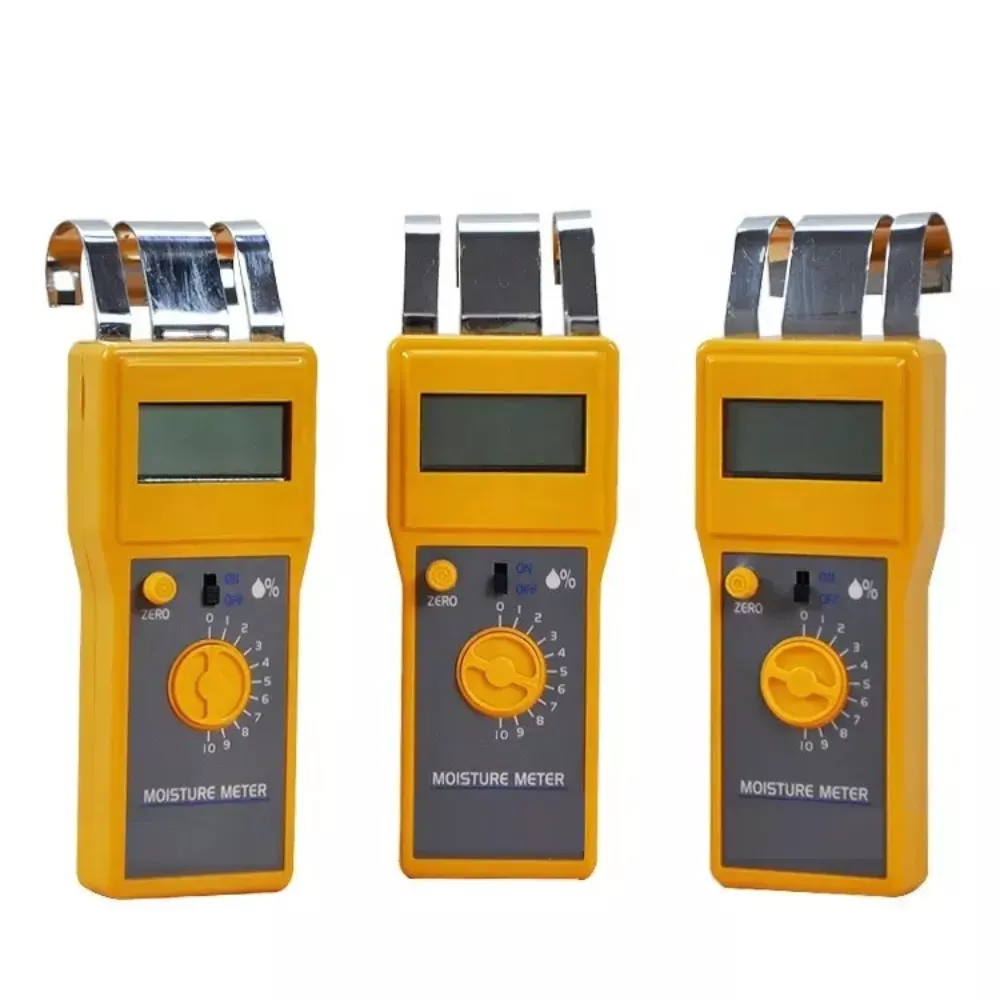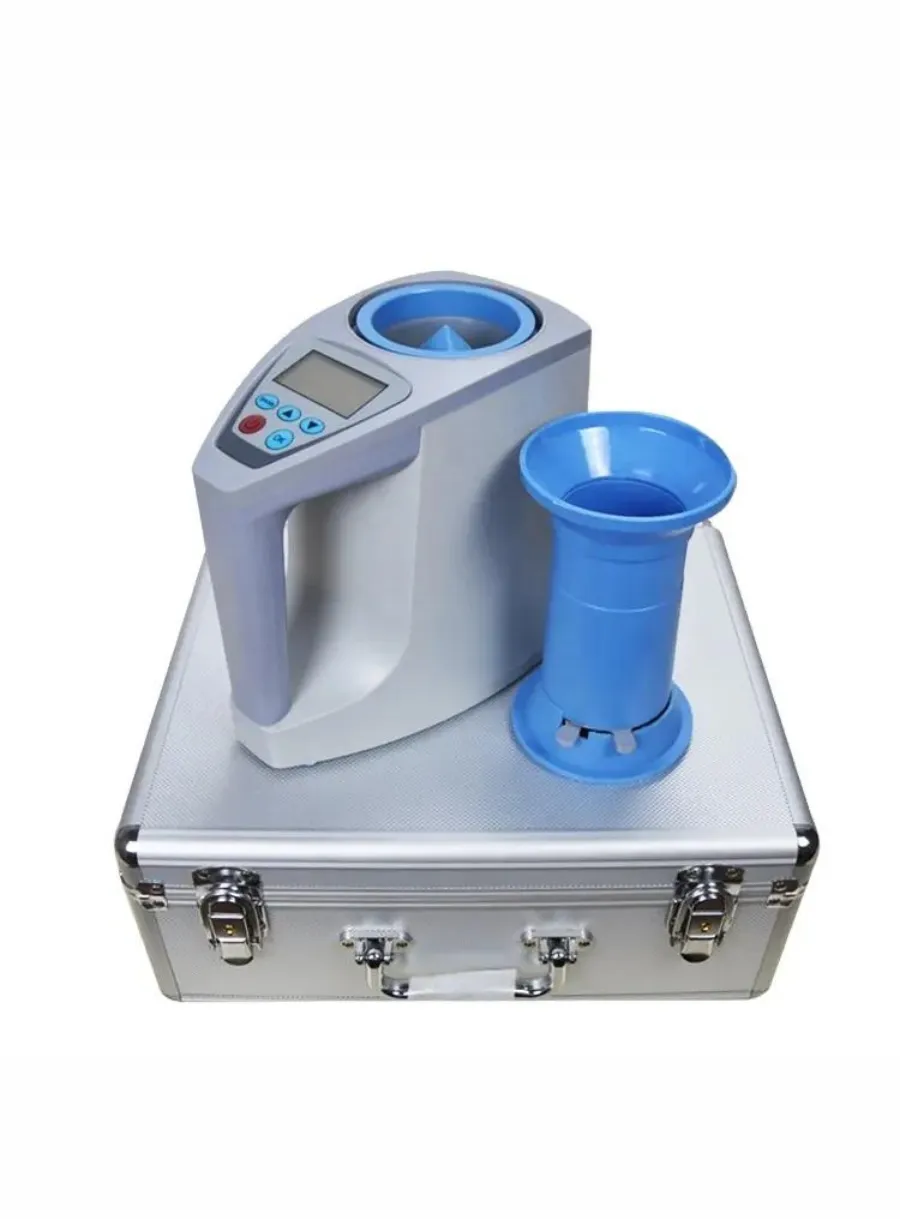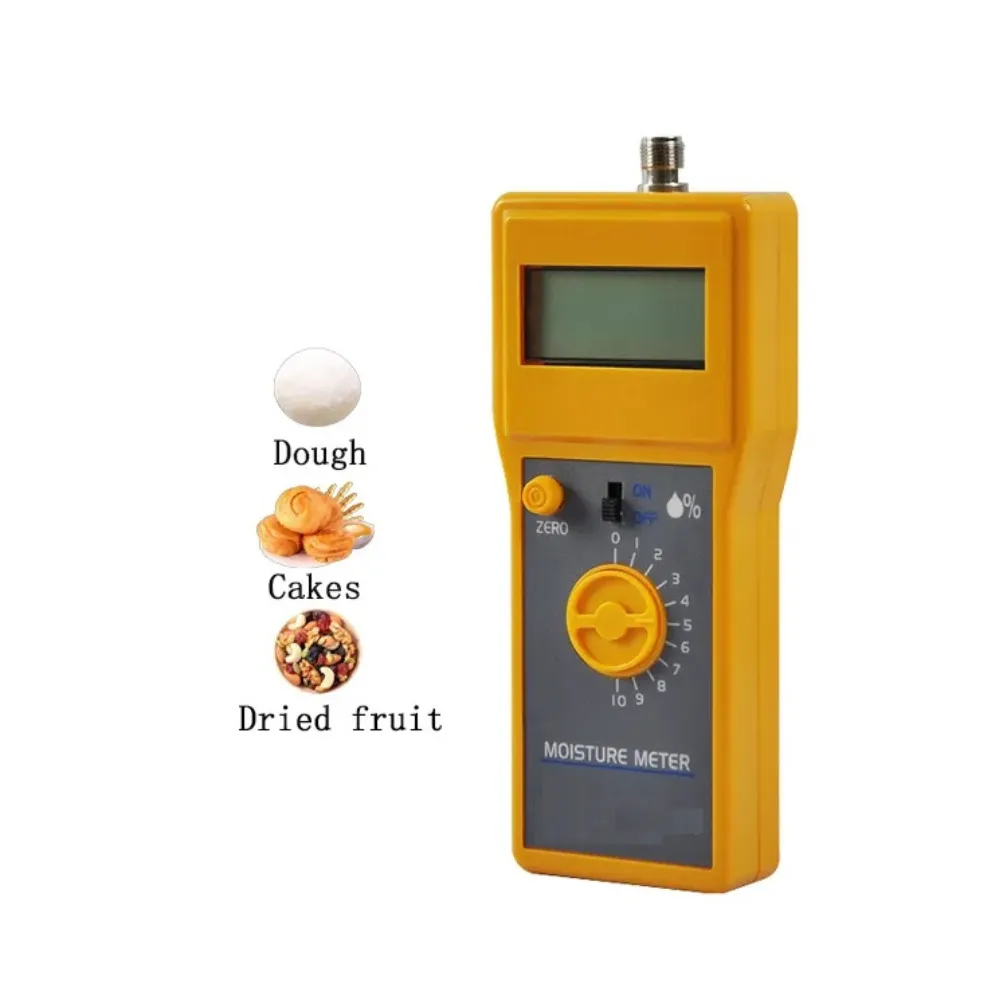
Advanced Features of Halogen Moisture Analyzers
Table of Contents
Heating Technology and Efficiency
Halogen moisture analyzers utilize a variety of primary heating sources, such as halogen lamps, metal rods, ceramics, and quartz lamps, all of which function by emitting infrared radiation absorbed by the sample to produce heat[8]. Among these, halogen lamps are particularly favored due to their low mass and rapid reaction time, which enable fast and accurate temperature regulation. This swift regulation ensures consistent and repeatable results from the first measurement, in contrast to some other heating sources that may require a preliminary warm-up measurement to achieve stable results.
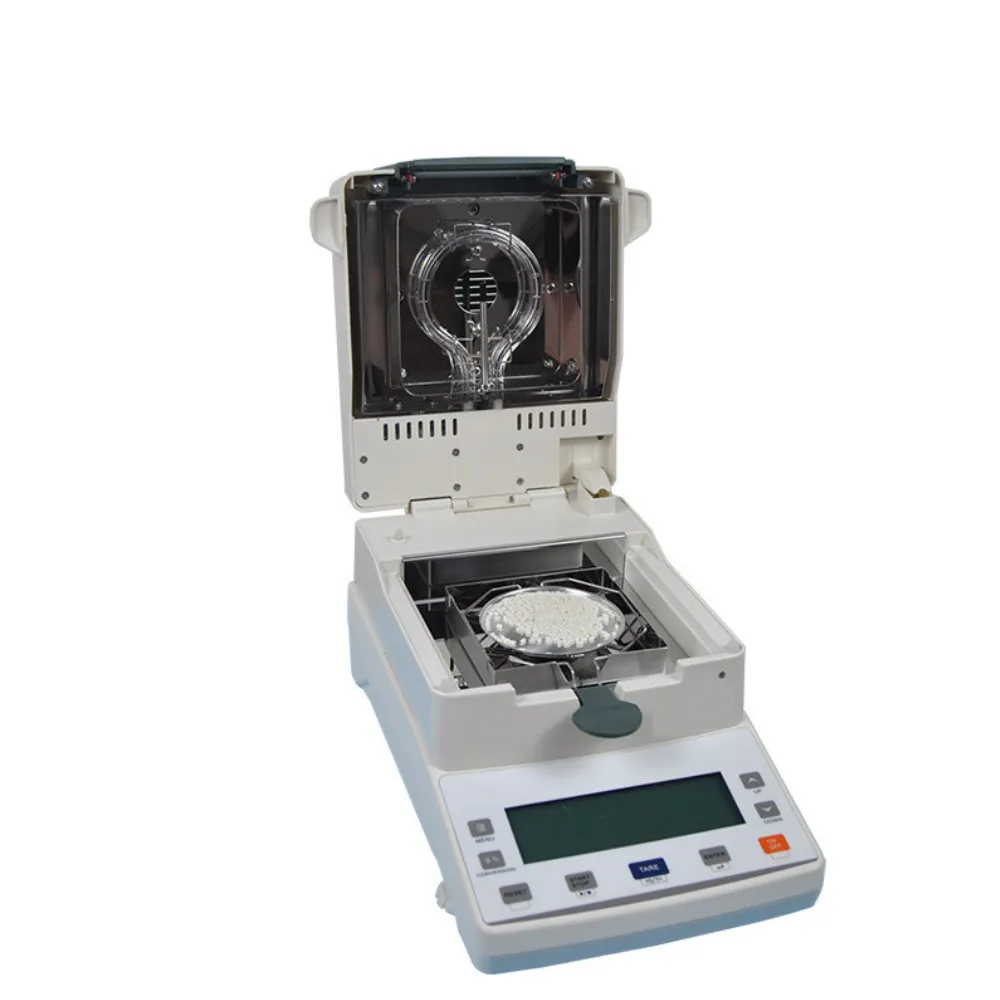
Key Components and Design
Key components of a halogen moisture analyzer include the heating element, typically a halogen lamp, and a high-performance weighing cell. The halogen lamp consists of a tungsten filament enclosed in a transparent quartz or high-temperature glass envelope filled with an inert gas and a small amount of halogen, such as iodine or bromine. This configuration supports the halogen cycle, where evaporated tungsten is redeposited on the filament, extending the lamp’s lifespan and enabling it to operate at higher temperatures for improved light efficiency[11][12]. The high temperatures achieved by the halogen lamp allow for more effective moisture determination by efficiently heating the sample. The weighing cell in advanced moisture analyzers like the HX204 is isolated from the heating source to prevent any heat-induced inaccuracies, ensuring that even substances with very low moisture content can be measured with high precision, offering a readability of up to 0.001% moisture content.
Usability and Data Management
User interaction with the halogen moisture analyzer is facilitated through touchscreen operation and onscreen guidance, which simplify the process of determining moisture content and reduce the likelihood of user errors. Data transfer capabilities via USB, Ethernet, WiFi, and RS232 allow for flexible data management, while software such as EasyDirect Moisture PC enables storage and visualization of results in a SQL database[8]. Compliance features, such as SmartCal™ performance verification and user management systems, ensure the instrument supports data integrity and regulatory adherence.
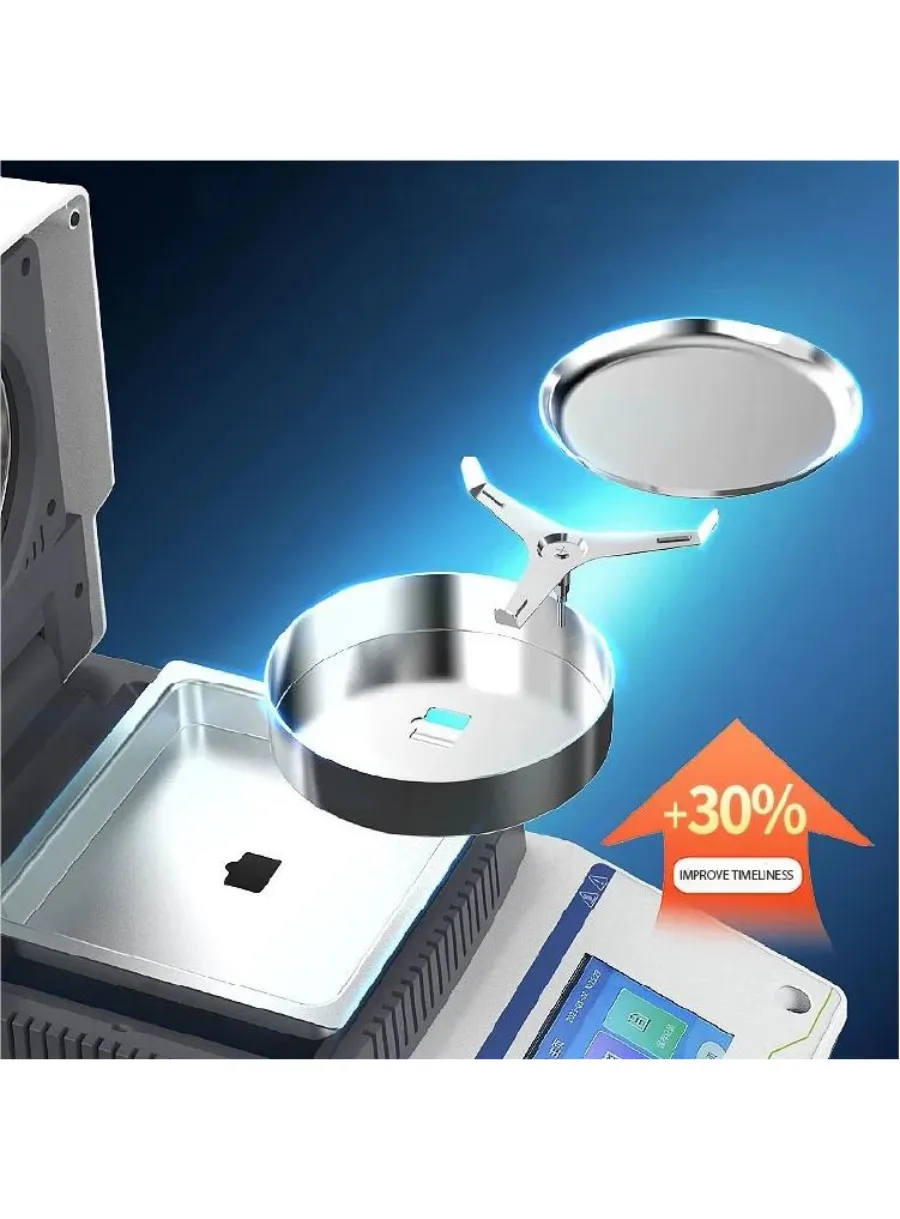
Comments
Tags
Frequently Asked Question
The primary heating sources used in halogen moisture analyzers include halogen lamps, metal rods, ceramics, and quartz lamps, all of which function by emitting infrared radiation absorbed by the sample to produce heat.
Halogen lamps are favored due to their low mass and rapid reaction time, which enable fast and accurate temperature regulation, ensuring consistent and repeatable results from the first measurement.
The halogen lamp consists of a tungsten filament enclosed in a transparent quartz or high-temperature glass envelope filled with an inert gas and a small amount of halogen, such as iodine or bromine. This configuration supports the halogen cycle, where evaporated tungsten is redeposited on the filament, extending the lamp’s lifespan and enabling it to operate at higher temperatures for improved light efficiency.
Halogen moisture analyzers have a weighing cell isolated from the heating source to prevent heat-induced inaccuracies, ensuring high-precision measurements even for substances with very low moisture content. They also offer compliance features, to support data integrity and regulatory adherence.

